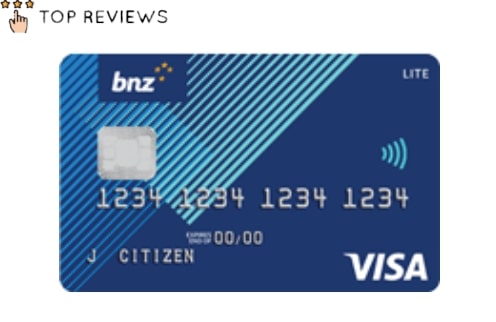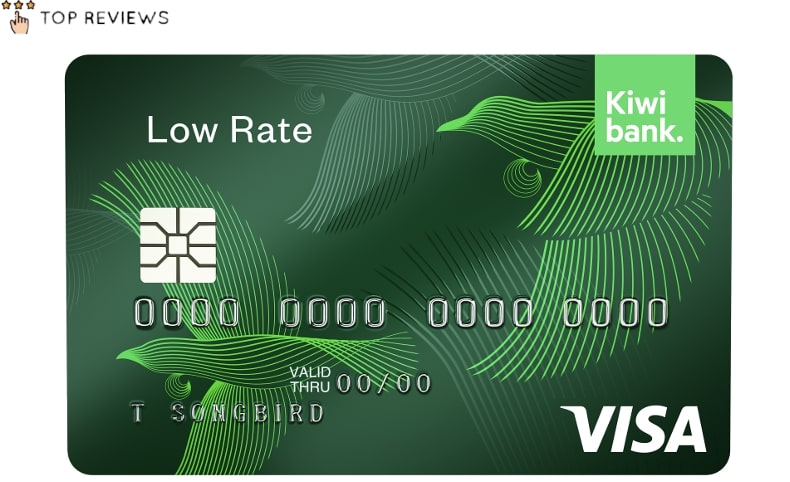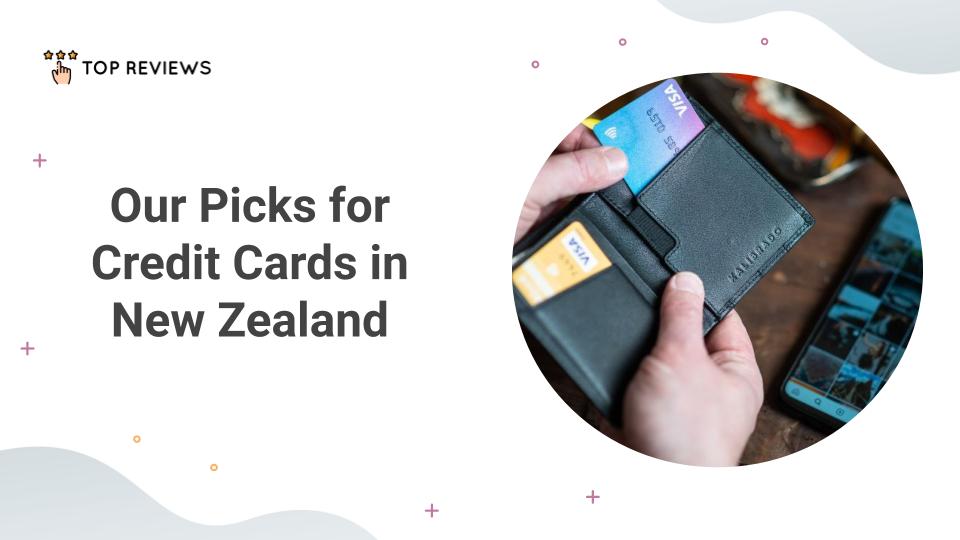The 5 Best Credit Cards in NZ Compared and Reviewed
Featured Image Source: Px Fuel
Looking for a new credit card with better rates or rewards? If so, we have you covered with this list of the best credit cards in NZ New Zealand.
Note that we gathered info on interest rates, account fees, rewards, and more to help you out. With this, you’ll find it easier to pick a credit card that suits your needs the most.
If you’re ready, let’s take a look at our credit card picks in NZ.
How Much Do Credit Cards Cost in NZ New Zealand?
Most NZ credit cards charge an annual fee, which may alternatively be called an “account fee”. This is essentially paying the bank for maintaining a line of credit for you and keeps your account open.
There are several factors that can affect the annual fee which include the credit limit (amount of money you can borrow) and the rewards (if any) that you receive as an account holder. The average account fee can range from $0 to $200 each year, depending on the type of card and the bank you choose.
One of the most important costs to watch out for is the purchase interest rate which is how much the bank will charge you if you don’t clear your credit balance for each billing statement. The interest rate is then usually added to your next billing statement until you pay the entire amount.
If for example, the bank’s purchase interest rate is 10%, and you have an unpaid balance of $50, you’ll be charged an additional $5. This would then make your next monthly statement at $55, providing you don’t have any additional purchases during that period.
Some of the best credit cards in NZ also offer account holders cash advances which are also charged with interest. The same rule applies as for purchase interest rates.
To give you an easier time, we compared credit cards in NZ and we’ve listed their fees and rates in the table below.
The Best Credit Cards in NZ Compared: Fees, Credit Limit and Interest Rates
| Annual Fee | Minimum Credit Limit | Purchase Interest Rate | Cash Advance Interest Rate | |
| American Express | $195 | $55,000 | 19.95% | 21.95% |
| ASB Visa Light | $0 | $1,000 | 13.5% | 22.95% |
| Kiwibank Low Rate Visa | $30 | $500 | 9.95% | 9.95% |
| BNZ Advantage Visa Classic | $40 | $500 | 20.95% | 22.95% |
| The Co-Operative Bank Fair Rate Credit Card | $20 | $1,000 | 12.95% | 12.95% |
The Best Credit Cards in NZ New Zealand Reviewed
Now that you have a better idea on the fees and rates associated with credit cards, we’re ready to take a look at our picks for the credit cards in New Zealand.
1. American Express Airpoints Platinum Card
For Credit Card for Travellers

| ANNUAL FEE | $195 |
| MINIMUM CREDIT LIMIT | $55,000 |
| PURCHASE INTEREST RATE | 19.95% |
| CASH ADVANCE INTEREST RATE | 21.95% |
| INTEREST FREE PERIOD | Up to 55 days |
| PERKS | Lounge Passes, Travel Insurance (Return Trip), Smartphone Screen Insurance, Purchase Protection Cover, Status Points, Discounted Koru Membership |
| OTHER | Minimum income of $65,000 |
APPLY FOR IT ON AMERICAN EXPRESS
The American Express Airpoints Platinum Card is dubbed as the fastest Airpoints-earning NZ credit card. It has a solid range of travel insurance plans, as well as lounge and VIP passes as part of its perks.
The annual fee of $195 is an enticing price, especially if you frequently fly on Air New Zealand. With this card, you can quickly rack up Airpoints Dollars and potentially earn free flights.
For every $59 that you spend, you get an equivalent of 1 Airpoint Dollar – and the best part is that the points don’t expire. Moreover, new cardmembers will get a bonus of 400 Airpoints Dollars if they spend $1,500 in the first 3 months.
You’ll also get free domestic and international Travel Insurance every time you use this card to fly, but only for your return trip. Any travel losses, expenses, cancellations, and medical emergencies are covered up to a certain amount.
If you use this card to buy your next smartphone, you’ll receive complimentary insurance of up to $500 worth of damage, although you’ll need to pay an excess of 10% of the claimed amount. As an example, if your repair bill was $500, you would receive a cashback of $450 and pay $50.
Now, the high-interest rate on this Amex at 19.95% means that you’ll want to pay any credit purchases upfront and in full each time your statement rolls in. With that said, you might want to take advantage of the 55-day interest-free period which is granted to new cardholders.
Additionally, there are still quite a number of establishments that don’t accept American Express, so you may not want to make this your only available credit card. As a platinum card, it’s also an exclusive membership that only includes those who have a minimum pre-tax income of $65,00 a year.
Nevertheless, you can feel secure purchasing with this card because you’ll get 90-day protection for stolen or damaged goods. The reimbursements are limited to up to $3,500 per item and up to $30,000 a year.
There’s a lot to like about this Airpoints credit card and its annual fee of $195 a year seems conservative considering all the perks and benefits you get.
Needless to say, this is the best credit card in NZ to get if you are a frequent traveller and would like to earn miles while spending!
Pros
- Highest Airpoints-earning rate
- Interest-free period up to 55 days
- Insurance and lounge benefits
- 90-day buyer’s protection
- Complimentary smartphone screen insurance
Cons
- High interest rate
- American Express is not widely accepted in establishments
- Annual pre-tax income of $65,000 required
2. ASB Visa Light
For Balance Transfer Credit Card

| ANNUAL FEE | $ 0 |
| MINIMUM CREDIT LIMIT | $1,000 |
| PURCHASE INTEREST RATE | 13.5% |
| CASH ADVANCE INTEREST RATE | 22.95% |
| INTEREST FREE PERIOD | Six months on purchases over $1,000 |
| PERKS | SmartRate, Zero-Percent Interest for Balance Transfers |
APPLY FOR IT ON ASB
One of the most appealing things about the ASB Visa Light is that it covers all the basics of what most people would need out of an NZ credit card. It’s tailor-made for those who just need the bare essentials, but that’s not the best part.
What will draw in potential cardholders to the ASB Visa Light is that there’s no account fee – there are no membership fees or hidden costs to hold the card as your own.
Yes, it may not have as many bells and whistles compared to other best credit card deals in NZ, such as a rewards program, but if you’re content with having a basic card that can purchase you something on credit, then this is right up your alley.
Additionally, ASB offers its unique Smart Rate, which gives you six months to pay for any purchases over $1,000 at a zero-interest. If you’re unable to clear your balance by that time, then their 13.5% purchase interest rate begins to take effect.
You can also transfer a balance from another credit card to your ASB Visa Light at no cost at all, though you’re limited to two transfers yearly with a $20,000 limit per transaction.
Regardless, this means you can pay off what you owe from another card at a friendlier rate, helping you climb out of debt faster.
Do take note that the debt with the highest interest rate is paid off first on your card, so make sure to clear all your balances before transferring or purchasing anything under the SmartRate. You should also take note that you can only transfer balances from non-ASB cards.
Aside from a high cash advance interest rate of 22.5%, there aren’t many disadvantages to this ASB Visa Light. Lastly, it has zero account fee, Smart Rate, and no balance transfer fees.
Pros
- Low 13.50% interest rate
- No annual fee
- 0% balance transfer interest rate for 6 months
- Smart Rate
Cons
- No rewards or perks
- High cash advance interest rate
- Limited to 2 balance transfers per year
- Can’t transfer balance from other ASB cards
3. Kiwibank Low Rate Visa
For Credit Card with the Lowest Interest Rate

| ANNUAL FEE | $30 charged as $15 every six months |
| MINIMUM CREDIT LIMIT | $500 |
| PURCHASE INTEREST RATE | 9.95% |
| CASH ADVANCE INTEREST RATE | 9.95% |
| INTEREST FREE PERIOD | Up to 55 days on purchases |
APPLY FOR IT ON KIWI BANK
The Kiwibank Low Rate Visa is aptly named because it offers the lowest interest rate at just 9.95%. It also has a low-cost annual fee of only $30 to hold the card, billed to you every six months at $15.
There is, however, another “low” to this credit card – which is a low credit limit of only $500. Once you realize this fact, then you start to see how this particular card can charge such a low-interest rate.
Regardless, this makes it the best credit card in NZ for students or fresh graduates, especially since they’re exempted from the annual fee for the first year. It’s also a great option for those who only need to use credit for minor purchases or emergencies.
Now, if you need a cash advance, the same interest of 9.95% also applies, and you can be eligible to borrow more than your credit limit as well. This credit card only charges a minimum repayment of $10 or 5% of your monthly balance, whichever is greater, making it a great low-cost option.
Do take note that your purchases will also be monitored by FraudWatch International, and if anything seems suspicious, Kiwibank will contact you or temporarily block your card until you can authenticate your transaction.
While there are no features or rewards with this card that you can benefit from, Kiwibank sometimes holds promotions for balance transfers from a non-Kiwibank credit card.
If you’re consistent with your credit score and clear your entire balance for each statement, you can take advantage of interest-free purchases for 55 days.
If you’re looking for a credit card that’s relatively simple to use with terms and conditions that are quite easy to understand, then the Kiwibank Low Rate Visa is a great choice. If you don’t mind the low credit limit, its affordable account fees and reasonable interest rates are a great deal.
Pros
- Supremely low-interest rate of 9.95%
- Low cash advance rate
- Up to 55 days interest-free purchases
- Students and graduates are waived of the first year’s annual fees
Cons
- Low credit limit
- No rewards or perks
4. BNZ Advantage Visa Classic
For Cashback Credit Card

| ANNUAL FEE | $40 |
| MINIMUM CREDIT LIMIT | $500 |
| PURCHASE INTEREST RATE | 20.95% |
| CASH ADVANCE INTEREST RATE | 22.95% |
| INTEREST FREE PERIOD | 55 days |
| PERKS | Cashback Rewards, Flybuys Points |
APPLY FOR IT ON BNZ
IIf rewards and perks are important to you, then the BNZ Advantage Classic is a credit card worth looking into. We like this card because you can select how to receive your rewards, with a choice between Flybuys or Cashback dollars.
So for every $150 that you spend, you get the equivalent of a $1 Cash Reward, which you can use in several ways such as paying off part of your credit card balance.
Other advantages of opting for cashback include being able to transfer the reward to a BNZ account to save or withdraw.
On the other hand, if you select Flybuys, every $40 you spend equals one point that you can redeem toward rewards at the Flybuys website. You can also avail of discounts at Flybuy partner retailers.
As a new cardholder, you’ll automatically be entitled to a $75 cashback or 500 Flybuys points when you spend a total of $1,500 in the first three months. However, with a low credit limit of $500, this means you’ll essentially have to max out and space out your purchases over those three months.
Moreover, despite their enticing rewards offers and low account fee, the BNZ Advantage Visa Classic has a high purchase interest rate of 20.95% and an even higher cash advance interest rate of 22.95%. This doesn’t make it suitable for those who can’t pay the full amounts on their balance each month.
However, if you’re able to clear your payments you’ll enjoy 55 days of interest-free payments and receive rewards for your purchases as well.
The BNZ Advantage Visa Classic is basically a great low-cost credit card, and its compatibility with Google Pay and Apple Pay makes it one of the best credit cards in NZ for online transactions.
Pros
- Can choose rewards between Flybuys or cashback
- Up to 55 days interest-free period
- Online credit card management
- Reasonably low annual fee
Cons
- High interest rate
- High cash advance rate
5. The Co-operative Bank Fair Rate Credit Card
For Credit Card for Fraud Protection

| ANNUAL FEE | $20 charged as $10 every six months |
| MINIMUM CREDIT LIMIT | $1,00 |
| PURCHASE INTEREST RATE | 12.95% |
| CASH ADVANCE INTEREST RATE | 12.95% |
| INTEREST FREE PERIOD | 55 days |
APPLY FOR IT ON CO-OPERATIVE BANK
The Co-operative Bank only offers one credit card, the Fair Rate Credit Card, which has a low annual fee of just $20. This is conveniently billed to you in two increments of $10 every six months.
Not only is its account fee affordable, but this NZ credit card also has a moderately low purchase interest rate of 12.95%. Its cash advance interest rate is the same at 12.95% as well, which a lot of potential cardholders will appreciate.
Another perk included with the Fair Rate Credit Card is its 0% balance transfer for six months. This is a great card if you want to transfer your balance from another card to pay it off through The Co-operative Bank with its lower interest rates.
While some users might shy away from the mere mention of this card’s floating interest rates, it has maintained at 12.95% since its launch in 2015 and doesn’t look like it will change anytime soon. With a $1,000 credit limit, this credit card can hold its own against some other heavy hitters in the market.
However, the Fair Rate Credit Card’s foreign currency conversion fee at 2.50% is a little higher than the usual standard rates and it doesn’t offer any rewards programs or glittery features. What you do get with this card is a solid low-interest, low-annual fee card.
If you don’t usually clear out your balance and let it carry over to the next statement, then this could be the best credit card deal in NZ for you with its low rates. With 24/7 Fraud detection transaction monitoring and Mastercard Zero Liability POlicy, you’ll also feel secure in using it for your purchases.
With online banking and even a banking app, the Fair Rate Credit Card is a no-frills product that gives you easy access to credit. If you can live without all the nifty rewards and perks that others cards offer, then this credit card is a solid choice.
Pros
- Fair interest rate
- Low annual fees
- Interest-free period of up to 55 days
- Mastercard zero liability policy
Cons
- Floating interest rates
- No rewards or perks
Things to Consider Before Applying for a Credit Card in NZ
Before you apply for credit, here are the things you should know to decide which one is right for you:
1. Types
Not all NZ credit cards function the same for every user. Below are the main types of credit cards:
Balance Transfer
Balance transfer cards allow you to repay existing debts on another credit card. They have lower interest rates and fees, letting you pay off your remaining balance faster.
Travel
Travel credit cards let you earn Airpoints Dollars or Flight Centre points. These in turn can be spent on flights, rental cars, hotels, wines, and other travel expenses.
Furthermore, these cards come with a number of benefits and rewards. They can be as simple as discounts and lounge passes or premium benefits like travel insurance.
You might also come across travel cards offering no FX or foreign transaction fees. As such, these credit cards are very handy when travelling abroad.
Cashback
As its name suggests, cashback credit cards let you earn back a small portion of the amount of your purchase. The earnings can then be used to purchase goods at a broad range of partner stores, or used toward the payment of your credit card bill.
Low-Interest
A low-interest credit card enables you to pay off your credit bills more affordably – it usually has a small or nonexistent annual fee and is a great card to use frequently. The only downside, however, is that it usually doesn’t have any rewards and bonuses.
2. Interest Rate
Credit cards vary in interest rates and rules – low-interest rates can range from 9.95% to 13.50% p.a. while high-interest rates can go up to 20.95% p.a.
That said, there’s more or less an interest-free period in most credit cards. This means that, for a certain time, you get to enjoy a 0% interest rate, until it goes back to its normal rate.
3. Cash Advance Rate
At times, you may have to withdraw extra funds to use or transfer cash from your credit card account. When you do these, you will have to pay the cash advance rate which can vary for each bank.
4. Bonus Offers
Bonus offers allow you to enjoy value-giving add-ons like store discounts, vouchers, free Airpoints Dollars, and joint credit card discounts. However, the catch is that you have to qualify first, which could either be by spending a particular amount or by signing up as a new member
5. Terms & Conditions
Lastly, you should always read the Terms and Conditions before applying for a credit card. It will save you from unexpected problems and sneaky fees along the way.
FAQs about Credit Cards in NZ New Zealand
With that said, our list of credit cards in New Zealand comes to an end. We hope you were able to find a bank that suits your needs!
Have you used any of the credit cards that we’ve mentioned or did we miss a few that should be included? If you have, send us a message and we’ll check it out.
Before you apply for a credit card, you may want to have your credit rating checked, as this could affect your application. You might want to check this list of agencies for credit check in New Zealand.
If however, you think that credit cards may not be the best option for you right now, we also have a list of no-credit check loans in NZ.



